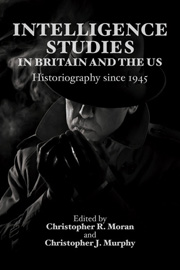Book contents
- Frontmatter
- Contents
- The Editors
- The Contributors
- List of Figures
- Preface
- Acknowledgements
- Introduction: Intelligence Studies Now and Then
- Part I AMERICAN INTELLIGENCE HISTORIOGRAPHY
- Part II BRITISH INTELLIGENCE HISTORIOGRAPHY
- 9 A Plain Tale of Pundits, Players and Professionals: The Historiography of the Great Game
- 10 No Cloaks, No Daggers: The Historiography of British Military Intelligence
- 11 The Study of Interrogation: A Focus on Torture, But What About the Intelligence?
- 12 Whitehall, Intelligence and Official History: Editing SOE in France
- 13 A Tale of Torture? Alexander Scotland, The London Cage and Post-War British Secrecy
- 14 1968 – ‘A Year to Remember’ for the Study of British Intelligence?
- 15 Their Trade is Treachery: A Retrospective
- 16 Intelligence and ‘Official History’
- Index
11 - The Study of Interrogation: A Focus on Torture, But What About the Intelligence?
from Part II - BRITISH INTELLIGENCE HISTORIOGRAPHY
Published online by Cambridge University Press: 05 October 2013
- Frontmatter
- Contents
- The Editors
- The Contributors
- List of Figures
- Preface
- Acknowledgements
- Introduction: Intelligence Studies Now and Then
- Part I AMERICAN INTELLIGENCE HISTORIOGRAPHY
- Part II BRITISH INTELLIGENCE HISTORIOGRAPHY
- 9 A Plain Tale of Pundits, Players and Professionals: The Historiography of the Great Game
- 10 No Cloaks, No Daggers: The Historiography of British Military Intelligence
- 11 The Study of Interrogation: A Focus on Torture, But What About the Intelligence?
- 12 Whitehall, Intelligence and Official History: Editing SOE in France
- 13 A Tale of Torture? Alexander Scotland, The London Cage and Post-War British Secrecy
- 14 1968 – ‘A Year to Remember’ for the Study of British Intelligence?
- 15 Their Trade is Treachery: A Retrospective
- 16 Intelligence and ‘Official History’
- Index
Summary
Interrogation that aims to collect intelligence from the person being interrogated has received scholarly and public attention, largely as a result of its connection with torture. The torture debate – as it is known – began when interrogators were unable to gain intelligence from ‘four suspect terrorists, among them Zacarias Moussaoui, being held in a New York prison following the September 11 attacks’. Many media organisations then responded to official cues and came out in support of the use of torture for counterterrorism. This debate has intensified discussions about what interrogation practices might be permissible in the pursuit of intelligence. Swathes of publications on torture have followed, many of them of an extremely high quality. Far from all of them, though, are of benefit to the study of interrogation or intelligence. As this chapter will demonstrate, there are sources on interrogation practices that are waiting to be exploited by scholars, and now that interrogation has captured the public imagination, it is likely that the amount of research being conducted will increase.
This chapter will demonstrate the current state of scholarship that addresses, or is relevant to, interrogation for intelligence-gathering. The first of the three main themes is justifiability. The question of what interrogation methods might be justifiable has been approached by legal scholars and moral philosophers. Both put forward arguments as to whether controversial interrogation techniques ought to be used.
- Type
- Chapter
- Information
- Intelligence Studies in Britain and the USHistoriography since 1945, pp. 222 - 235Publisher: Edinburgh University PressPrint publication year: 2013

